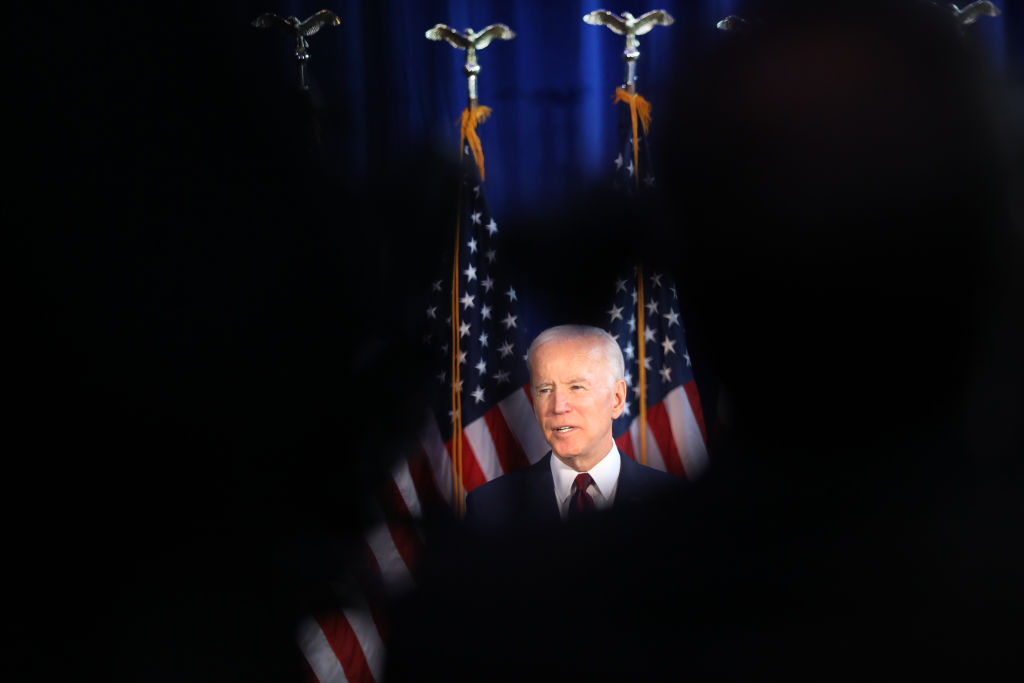
Leaving aside President Donald Trump’s unsubstantiated wrangling about the legitimacy of the US election, President-elect Joe Biden is set to engage in a policy of rectification on both the domestic and foreign policy fronts. In US external relations, he can be expected to be a multilateralist and liberal realist in promoting America’s global role.
One key focus will be the Middle East and, in contrast to Trump, Biden is most likely to follow his Democratic predecessor, Barack Obama, in dealing with the troubled region. There are four areas where he could seek to make a difference.
The first is the July 2015 landmark Iran nuclear agreement (the Joint Comprehensive Plan of Action, or JCPOA). A longstanding critic of the deal, Trump withdrew from it in May 2018. He lambasted the Iranian Islamic regime as an aggressive and destabilising actor in the region and beyond, and adopted a policy of maximum pressure. His aim was to force a defiant Tehran to renegotiate the JCPOA and reduce Iran’s missile capability and regional influence, which would also please Iran’s regional archrivals and Trump’s favoured US allies, Israel and Saudi Arabia.
Trump ignored the fact that the JCPOA was a multilateral agreement. The other signatories, Britain, France, Germany, Russia and China, opposed his measures and maintained their support for the deal as important for international security, causing a major rift in the transatlantic alliance. Trump’s approach has failed: the Iranian regime has resisted and survived Washington’s pressure, though it has taken a heavy toll on Iranian society.
Biden has indicated that he will restore US participation in the JCPOA and reach out to Iran, as Obama had done, to make the agreement work and thus also remove one of the obstacles in America’s relations with its traditional European allies. He will face strong opposition from the Trump-dominated Republican Party at home, and from Israel and the Saudi-led Arab states in the region. But he should be able to override their objections as Obama did.
Some kind of rapprochement with Iran would allow Biden to focus on bigger foreign policy issues, such as dealing with China as an emerging rival superpower and Russia as an increasingly assertive power.
The second area relates to the Israeli–Palestinian conflict. Trump dispensed unprecedented friendship with Israel at the cost of the Palestinians’ struggle for freedom and independence. Biden is likely to pursue Obama’s approach. He has made it clear that he will adhere to international law and United Nations resolutions by not recognising Israeli settlements in the occupied territories as legitimate, by opposing any annexation of the West Bank and by favouring the two-state solution as the best option for a political settlement of the conflict.
Given Israel’s bipartisan support in the US Congress, Biden is unlikely to be able to reverse some of Trump’s measures, such as shifting the American embassy to Jerusalem. But he would be well placed to seek a revival of peace talks for a negotiated resolution of the conflict.
The third arena is America’s relationship with Saudi Arabia. Trump treated the oil-rich kingdom as a highly favoured nation and valued its purchasing of American arms. He developed very close relations with the controversial Saudi Crown Prince Mohammad bin Salman (MbS) and strongly backed the Saudi-led Arab coalition’s military operations in Yemen. He brushed aside congressional concerns and the UN findings about MbS’s involvement in the brutal killing of the Saudi dissident and Washington Post columnist Jamal Khashoggi in Istanbul in October 2018. He went to extraordinary lengths to protect MbS, and the kingdom became central to his plan to generate an anti-Iran, Arab–Israeli front.
Trump showed no qualms over the human and material devastation that Saudi-led air strikes inflicted upon the Yemeni people. In contrast to Obama, who halted US support for such strikes during his final year in office, Trump provided logistical backing for them.
Biden and his Democratic entourage are set to take a different view of Saudi Arabia. While not sidelining the kingdom, they will find it compelling to rationalise relations with it to whatever extent possible. This would include softening America’s backing of MbS for both political and moral reasons, and curtailing support for Yemen operations.
The fourth area is the dominance of authoritarianism in the Middle East, from the Arab monarchies in the Gulf to Egypt in North Africa—all US allies. Trump’s authoritarian populism underpinned his admiration for autocratic rulers. In contrast, Biden will have an opportunity to emphasise the need for anti-authoritarian reforms across the region. This is not to suggest that he would make democratisation a centrepiece of his foreign policy, as his Republican predecessor, George W. Bush, tried, unsuccessfully, to do. He is most likely to lean against illiberalism in his administration’s dealings with autocracies.
The Middle East has confounded expectations of the US as the traditionally dominant power in the region in the past. However, a non-hegemonic Biden approach stands a better chance of contributing to regional stability than Trump’s policy of ‘divide and rule’ at home and abroad that robbed the region of any opportunity for meaningful regional cooperation. Of course, all this will depend on what Trump’s refusal to concede electoral defeat brings about, and how successful Biden will be in addressing the domestic challenges, especially if he is faced with a Republican majority in the Senate.

